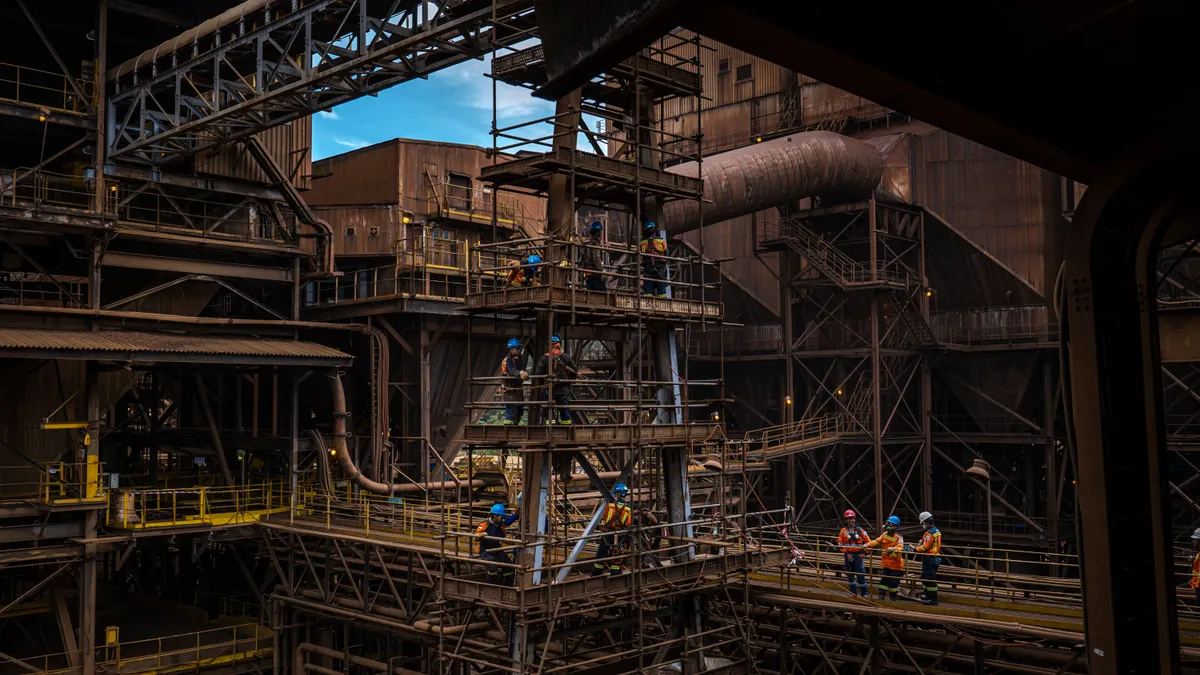Dive Brief:
- The United Nations announced the creation of a panel Friday that will develop a framework of voluntary guidelines that aim to curb environmental and social issues linked to the mining of “critical minerals” — elements and substances that serve an essential function in the production or utilization of energy technologies.
- The Panel on Critical Energy Transition Minerals will draw on the expertise of governments and stakeholders from almost 100 countries and “address issues relating to equity, transparency, investment, sustainability and human rights.”
- UN Secretary General António Guterres said the extraction of critical minerals can elevate the economies of developing countries as it creates jobs and increases revenue, but only if the process is managed responsibly. “The race to net zero cannot trample over the poor,” he said in the release. “The renewables revolution is happening — but we must guide it towards justice.”
Dive Insight:
The panel will be spearheaded by South Africa’s ambassador to the UN, Nozipho Joyce Mxakato-Diseko, and the European Commission’s director general for energy, Ditte Juul Jørgensen.
South Africa has vast mineral reserves and is home to over 50 mineral commodities, including the world’s largest share of manganese and platinum reserves. Manganese is a key material used in the construction of wind power plants and wind turbines, and platinum is used to produce renewable hydrogen and unlock its power in fuel cells.
The European Union, meanwhile, has established several clean energy initiatives geared toward renewable energy production, including the updated 2023 Renewable Energy Directive. This regulation set a target for EU countries to generate at least 42.5% of its energy from renewable sources by 2030. The infrastructure needed to meet such targets and facilitate the transition to clean energy also relies on the mining and utilization of critical minerals.
Mining of key raw materials used to create climate technology to accelerate the energy transition — such as electric vehicles, wind turbines, solar panels — has historically been linked to social issues such as illegal labor and unsafe worker conditions, in addition to environmental damage. Extraction of such materials can lead to deforestation, dismantling of ecosystems and also release harmful toxins into the atmosphere — all, ultimately, adversely impacting the surrounding communities.
The International Energy Agency estimates that to reach net-zero emissions by 2050, the total market size of critical minerals like cobalt, copper, manganese and several rare earth metals is expected to grow almost sevenfold between 2020 and 2030.
“The growing dependence on critical minerals required for key clean energy technologies calls for new international mechanisms to ensure both the timely availability of supplies and sustainable production,” the IEA said in its 2021 report.
Mxakato-Diseko said the panel’s objectives are aligned with the United Nations Framework Agreement on Climate Change,its accompanying Paris Agreement and the UN’s 2030 agenda for sustainable development.
“In establishing the Panel, the UN Secretary-General is commendably responding to a normative gap identified by many countries, especially developing countries, related to critical minerals and rare earths required for sustainable development and just transitions,” she said in the release.












